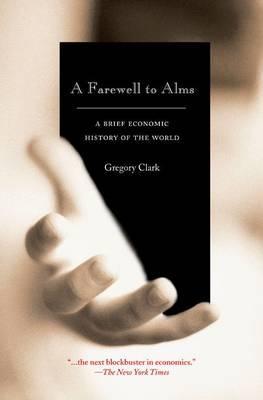Farewell to Alms

Farewell to Alms
The problem, Clark says, is that only societies that have long histories of settlement and security seem to develop the cultural characteristics and effective workforces that enable economic growth. For the many societies that have not enjoyed long periods of stability, industrialization has not been a blessing. Clark also dissects the notion, championed by Jared Diamond in Guns, Germs, and Steel, that natural endowments such as geography account for differences in the wealth of nations. A brilliant and sobering challenge to the idea that poor societies can be economically developed through outside intervention, A Farewell to Alms may change the way global economic history is understood.
PRP: 198.40 Lei
Acesta este Prețul Recomandat de Producător. Prețul de vânzare al produsului este afișat mai jos.
178.56Lei
178.56Lei
198.40 LeiLivrare in 2-4 saptamani
Descrierea produsului
The problem, Clark says, is that only societies that have long histories of settlement and security seem to develop the cultural characteristics and effective workforces that enable economic growth. For the many societies that have not enjoyed long periods of stability, industrialization has not been a blessing. Clark also dissects the notion, championed by Jared Diamond in Guns, Germs, and Steel, that natural endowments such as geography account for differences in the wealth of nations. A brilliant and sobering challenge to the idea that poor societies can be economically developed through outside intervention, A Farewell to Alms may change the way global economic history is understood.
Detaliile produsului
- Categoria: Art forms, treatments & subjects, World, Economic History, World History
- Autor: Gregory Clark
- Editura: Princeton University Press
- An aparitie: 2009, 2008, 2019 Afisează mai mult











